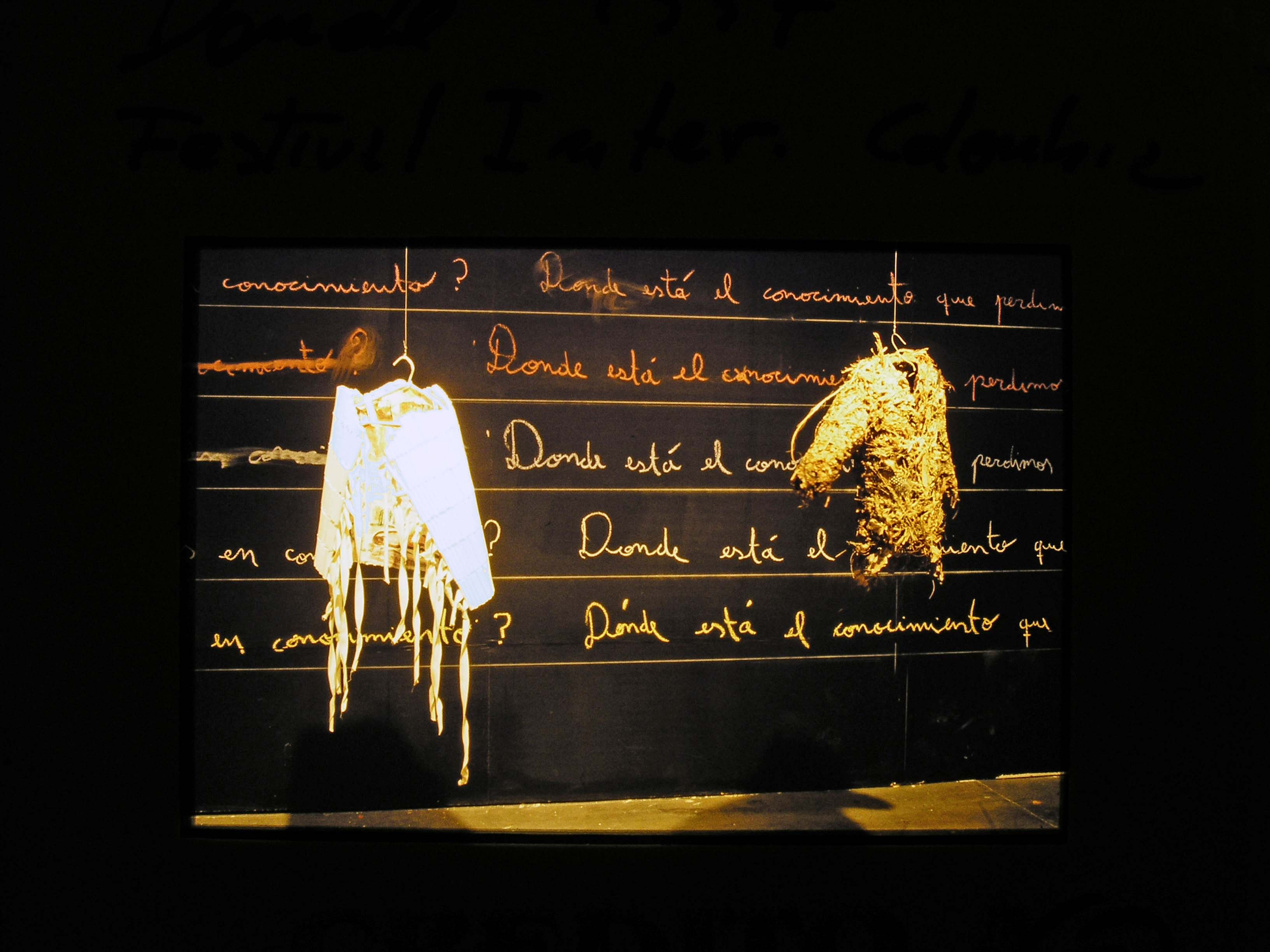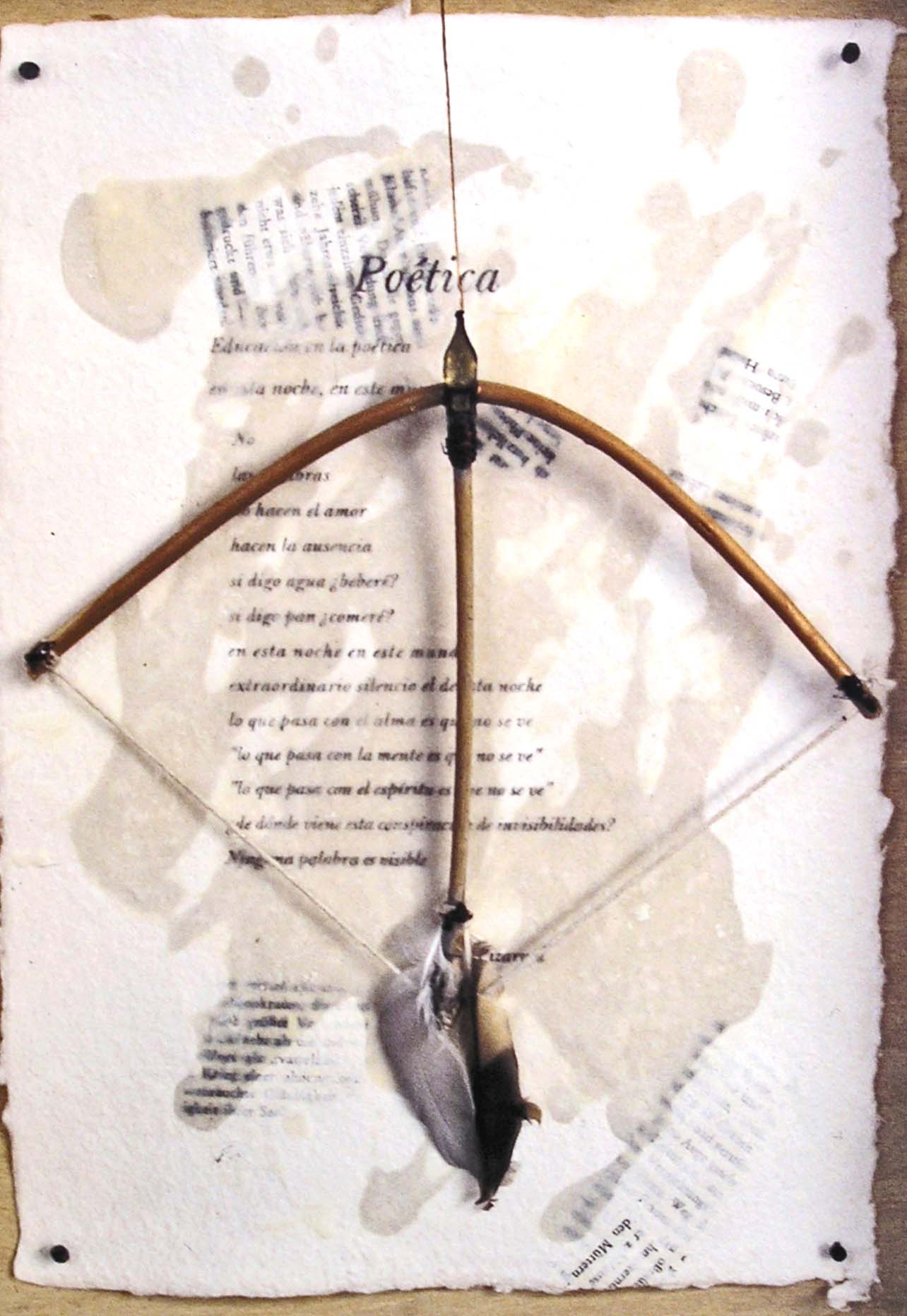https://www.albany.edu/offcourse
http://offcourse.org
ISSN 1556-4975
 |
A journal for poetry, criticism, reviews, stories and essays published by Ricardo and Isabel Nirenberg since 1998. |
The Element of Surprise, by Ricardo Nirenberg, with images by Rubén Grau
Consider this element as a constituent of success: In warfare, it means that our forces catch the enemy unprepared, a decisive advantage. In art, the field which concerns us now, it means that the reader, the viewer or the listener will be caught off guard, and that therefore the artist’s message (to express ourselves scientifically) will be able to reach the receiver’s unconscious directly, so as to achieve the greatest possible effect.
In a previous essay, “The Truth Shall Make You Laugh” (Offcourse # 38), we recalled one of the slogans of the radical rioters of May 68: “Toute vue des choses qui n’est pas étrange est fausse.” Truth, in other words, should come to us as a surprise. Let us now do something we should have done in the previous essay but didn’t: let’s climb one step up and inquire about the truth of that Parisian statement about truth (let us go, to put it logically, into a metalanguage with which to comment about the Parisian slogan). Specifically, does the slogan itself satisfy the criterion of truth it proposes? To any person minimally conversant with modern art, it does not, because the slogan itself is old hat. Long before May 68, the Surrealists were saying pretty much the same thing, and their work in large measure was intended to surprise the public by means of its étrangeté or bizarreness: a cup and saucer made of fur, a toothy smoothing iron, a locomotive coming out of a fireplace, etc. And the Futurists before them were saying pretty much the same. And even in the 18th century, Laurence Sterne declared that if he thought his readers were “able to form the least judgment or probable conjecture … of what was to come in the next page,—I would tear it out.”
So, being definitely old hat, by its own criterion, the slogan must be false!
The element of surprise, then, is like a gun, of great usefulness if you want to kill someone, but bearing no necessary relation to truth. From an aesthetical point of view, the element of surprise may have marketing value, perhaps, but no truth value by itself, whatever we make of the conjunction of truth and art. The injunction that art must surprise is self-negating and perverse, in spite of what literary agents always say—“If you want me to represent you, surprise me…” It is, of course, the principle defining the avant-gardes, and it is fitting that the name should be a military metaphor, and that they, the avant-gardes, should be devoured by the very principle which defines them.
There’s nothing new or surprising in the above. But here is something which may be new in this context. There is a paradox, well-known to logicians and philosophers, called “The surprise test paradox” [http://plato.stanford.edu/entries/epistemic-paradoxes/#SurTesPar], which contributes some light on the problem of the Parisian slogan and the avant-gardes. The paradox goes as follows:
A teacher, whose class meets every week day, announces to his students that the following week there will be a surprise test. A student rises to say that it is impossible, and she argues thus: suppose we have reached Thursday evening without a test; that will mean that the test must be given on Friday, last day of the week. But then it will be no surprise. So, since you are telling us that the test will be a surprise, we may safely conclude that you cannot count on giving it on Friday. Now, possessed of that piece of knowledge, suppose we come to Wednesday evening, and you have not given us the test. Then we know that your test will be on Thursday (since it cannot be on Friday), hence, again, it will not be a surprise. So now both Friday and Thursday are excluded as possible days for a surprise test. You see how the thing goes. In successive and similar steps, Wednesday, Tuesday and Monday are ruled out, and the teacher’s statement is proved to be impossible. What’s wrong? There must be something wrong, since the teacher shows up on Tuesday, let us say, and gives a surprise test, that is, unexpected by the students.
There are many different interpretations and explanations of what’s wrong, or why this is not a paradox. I would like to stick with my own explanation: announcing a surprise as a must involves a contradiction; if we want to keep open the element of surprise, we must allow for the possibility that there may be no surprise at all. If we interpret it that way, the student’s argument fails at the first step. In other words, the teacher should have said, “In the coming week, there will be a test which may be a surprise.”
The radical replacement of a must by a may is, I am saying, a logical precondition of newness and surprise. No ukase and no Führerbefehl is compatible with newness or with genuine surprise. This, however, will be resisted by the writers of manifestoes and the purveyors of a better future. May is such a weak verb compared to must—how do you move crowds with mays? You don’t. And that is just the point. To allow for the new, you may have to forego the massively moving, and you should let in the peculiar, the not-necessarily forthcoming. Which may be another paradox.


R. Nirenberg is the editor of Offcourse. See more of Grau's work at Rubén Grau